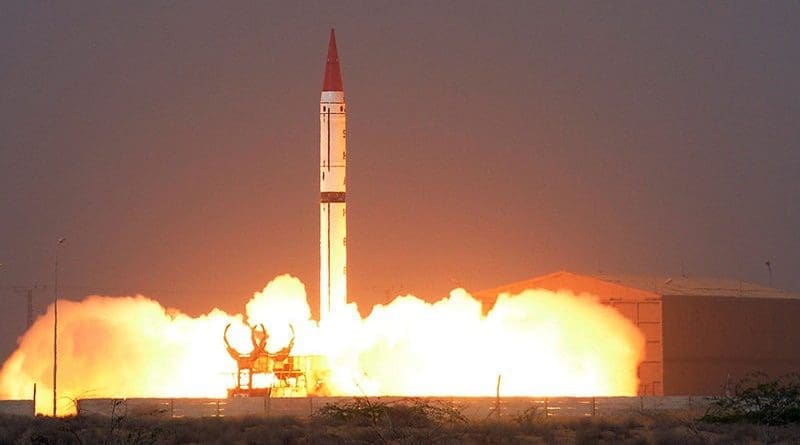Tenth NPT RevCon And The Future Of Nuclear Non-Proliferation Regime – OpEd
The nuclear non-proliferation regime comprises of numerous legally binding initiatives. The nuclear Non-Proliferation Treaty (NPT) is the cornerstone of the non-proliferation regime. The NPT is a landmark international treaty designed to prevent the proliferation of nuclear weapons and weapons technology and to achieve nuclear disarmament. The Treaty envisions a review of the operation of the Treaty after every five years. The Tenth Review Conference (RevCon) of the Parties to the Treaty on the Non-Proliferation of Nuclear Weapons (NPT) met in New York from 1 to 26 August 2022, to discuss the future of the international security environment with the growing threat of the use of nuclear weapons.
The NPT review conferences play an important role in analyzing and assessing the implementation and results of the agreement and charting the course of action over the next five years. Twenty-five years after its entry into force, the decision to extend the NPT indefinitely was taken at the 1995 Review and Extension Conference. The 10th RevCon follows the 2015 RevCon that ended without consensus on adopting a key outcome over the next five years. The 2010 RevCon was the last time NPT state parties successfully adopted an outcome document that identified conclusions and recommendations for action such as the implementation of the 1995 resolution on the Middle East.
The 10th RevCon comes at a time when geopolitical tensions and nuclear weapons threats are at their highest levels since the end of Cold War. UN Secretary-General Antonio Guterres has highlighted the impact of the COVID-19 pandemic on geopolitics, as well as the growing inequality and crises facing peace and security around the world. The crises fester from the Middle East and the Korean Peninsula to the invasion of Ukraine by Russia, and to many other factors around the world.
As a result, some of the key action areas focused on reaffirming states’ commitment to preventing the use of nuclear weapons, reduction and eventual elimination of nuclear weapons arsenal, reinforcing disarmament agreements and decreasing tensions in Middle East and Asia, as well as addressing the impact on nuclear non-proliferation in the aftermath of Russia’s invasion of Ukraine.
NPT state parties have emphasized concerns over the risk of nuclear disaster because of the Russian occupation of the Zaporizhzhia NPP. The draft report calls for restoration of Ukrainian control of the NPP to ensure safety and security. However, the RevCon failed to reach a consensus due to Russian objections to language addressing the crisis at Ukraine’s Zaporizhzhia Nuclear Power Plant.
The committee was unable to reach anything significant on nuclear disarmament. But, the draft came out which demonstrated the collective cooperation on nuclear disarmament and non-proliferation, but the conference lacks the urgency to address the challenges.
The future credibility of the treaty rests on its full implementation. NPT is currently facing numerous challenges, which entails the issue of non-proliferation and disarmament, its failure to integrate the three nuclear weapon states into its fold i-e Pakistan, India and Israel, the challenge by TPNW, which is likely to emerge due to weaknesses of the NPT. The NPT has not been able to bring nuclear weapon states on one table, without discrimination; hence, it is becoming increasingly difficult to universalize the non-proliferation norms.
Though NPT has been credited with successfully preventing the horizontal proliferation of nuclear weapons, but it has numerous loopholes. So far, it has been unable to make any progress towards disarmament, which is the crucial element of the treaty. The existing limitations in the treaty and the further emergent challenges make the future of NPT very bleak. If such challenges persist, that could threaten the very existence of NPT. Hence, in order to keep the NPT mounting, and for the maintenance of its sanctity, it is imperative to address the challenges, and should advance with the non-discriminatory approach.

